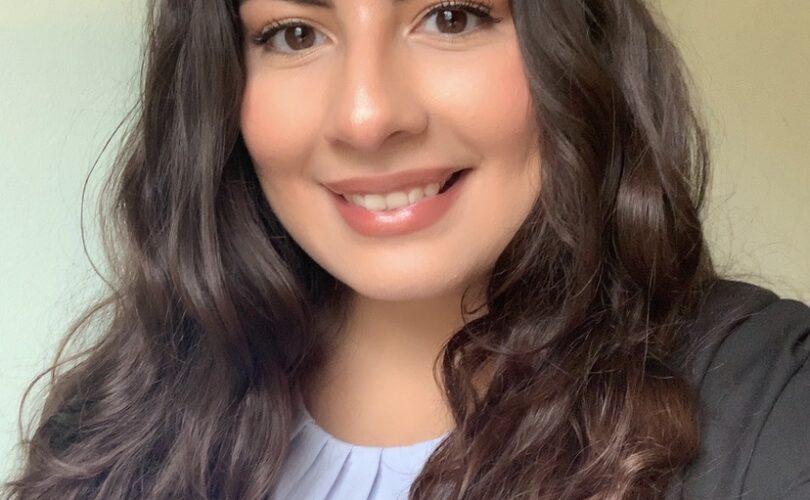Meet other 2020 honorees: Ishva Mehta or Kaci Xie

Yasmine Boto | 1L (First Year)
New York Law School
My different identities make navigating the world tricky, especially in a country where labels are part of our everyday routine.
There is a box for everything: race, religion, language, you name it. I have never fit into just one box. How does a half-Ecuadorian and half-Moroccan Muslim who speaks Spanish, Arabic and English identify? Where do I truly fit in?
My most acute feelings of not belonging in any one group came from growing up in a predominantly white, wealthy suburb in New Jersey. I knew I did not belong upon hearing the term “stay at home mom.” I thought all mothers worked a full-time job and that after school jobs were the norm for teenagers. I babysat when I could and started my first on-the-books job when I was in high school, but it wasn’t enough. My classmates were receiving weekly allowances of what I was making in a month. When college applications were due, I had almost no means of paying for them. As the daughter of immigrants, I knew that getting an education was expected of me and it was something I had always wanted for myself. I just did not know if I could afford it. Fortunately, I found a school – Seton Hall University – where I received an academic scholarship, making me the first person in my family to attend a four-year university.
My sense of ‘other,’ born of my ethnicity, religion, language, and financial reality continued in college. While some of my classmates could focus exclusively on their coursework, I juggled taking 18 credits, working a work study job in between classes, working as a nanny every afternoon, participating as an active member of my sorority, and interning each summer. It was difficult, but all my previous experience helped me gain the patience and time management skills to make it all work. Despite these obstacles I graduated cum laude.
All of my struggles made me who I am today. They fueled my passion for justice and service. My desire to work in public interest comes from a deeply rooted understanding of how one’s identity determines their place in this world. Every experience I have ever had has been influenced by who I am, good or bad. These experiences have pushed me to want to radically reform the systems that continue to ostracize marginalized communities, as lawyers can. I saw the importance of having someone advocate for you when I served as a CASA intern. There I witnessed kids in foster care who turned to adult volunteers to help them escape abusive foster care placements. At the ACLU of New Jersey, I read hand-written letters from incarcerated individuals detailing the horrific conditions and treatment they faced during their incarceration and spoke to survivors about their time in prison. At the International Rescue Committee I heard similar stories of deprivation from people in immigration detention. As a family law paralegal, I watch people going through the hardest times in their lives struggle to understand the processes they are navigating and the impact these decisions will have on their futures. These moments have shown me that at the most vulnerable times of their lives, people must always be seen and heard. I believe that as an attorney I will have the capability to help these communities in the greatest capacity possible.
After spending four years working alongside different kinds of lawyers it became clear to me that they had the ability to effect great change – sometimes to systems and sometimes for individual clients. As a lawyer I know that by effectively representing people from the beginning to the end of their legal struggles, I can help them navigate systems designed to overwhelm them.
I want to engage in advocacy driven by deep relationships formed with my clients as a public interest attorney.
I know what it’s like to not feel seen. This has been the reality of my entire life, but I have been able to use my unique background to help as many people as I can; and want to continue doing so as an attorney. I want to serve the needs of people in communities who have been cast aside and forgotten. I am dedicated to public service and this fellowship opportunity would lessen the financial burden associated with obtaining higher education and allow me to further help my communities.

